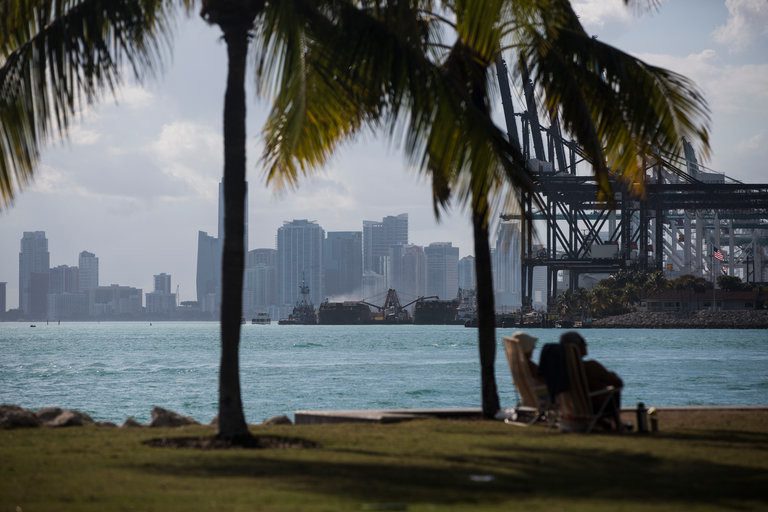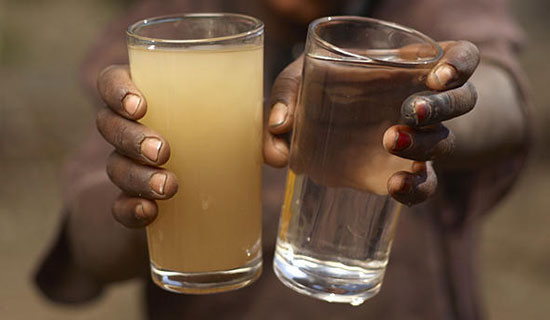by Robina Tower
Rain pelted down in large opaque drops. Great trees flung across the river so that the canoes and their contents had to be pulled over them.
At first getting used to the verdant green hurt the eyes, eventually they focused on the many hues of green and then the browns of tree trunks and branches, flowers of every imaginable color, shape and texture softening the green.
Each day rain comes and goes at any moment for varying marks of time. Rivulets of mud where humans have left their path, wind downward towards the river’s edge. The rain is sometimes so loud one cannot hear one’s self speak, let alone each other.
How does it feel, the jungle? Not the way most tourists perceive or see it; that’s for sure.
It was the rainy season. I had traveled up the Amazon from Belem to Manaus . The river is often eleven kilometers wide, so here the jungle feeling is often nonexistent since you can see only muddy, murky water in this season. Then, just before Manaus, you arrive in the “meeting of the waters.” Here the also formidable Rio Negro and the Amazon come to meet, not together, for both currents are so strong that they remain totally separate, one black mud and the other brown. They create a distinct line, a spectacular sight of nature’s force.
The natives and locals are hardly aware of it, except for a definite direction along that current needs to be taken or they can be swept far off course.
After several days in Manaus , waiting, I then continued on my way up the river by mail boat and in the direction of Peru and the Amazon’s source.
Thunder rolled around in the distant sky with the promise of another storm. One wonders after days of rain how it could be that the rainfall level was dropping, but “it is true,” the natives tell me at every turn.
Here the jungle and its river are now one imagines it before coming to South America . One can see everything distinctly and in great detail. Greens with dappled yellow or white leaves on great trees reaching 40-50 feet into the upper canopy, occasionally allowing one a glance at the blue sky far above, the sunlight moving slowly, streams of light gently caressing what it can reach in the near light below. Here parasites in the form of bromeliads, orchids and bird nest fern take over entire branches of trees, creating the most amazing profusion in color. Birds of every varying kind and size either fly or hop from branch to branch, splashes of moving color, on the move. Parrots, hornbills, toucans, at times their chatter or screeching was almost deafening. By 4 pm the shadows grow long and twilight becomes almost eerie. The boat is moored, for the oncoming night approaches rapidly. As we step onto the river’s edge and into more tangled, leafy canopy, the jungle sounds also become more intimate and intense, surrounding me. Palms, Elephant Ear leaves, ferns of many varieties gently hide our path, but the natives have a second sight, it seems, as they don’t hesitate for a moment.
But this is not all beauty; it is also a very dangerous jungle with poisonous frogs and snakes. Those that are not poisonous are often 30′ long, or as round as your waist, the Anaconda and the Boa Constrictors that can squeeze you to death. Spiders as large as a man’s hand; the tarantula, here an ebony black and as deadly as it looks, not like its North American cousin that is brown and most often not deadly.
For this reason, one sleeps in hammocks, off the ground and a net is wrapped around the hammock so nothing can get in to bed with you. Nature made her point next morning in no uncertain terms. Upon awakening, I lazily looked up and nearly gave myself a heart attack. The natives began laughing, they think it’s funny, but watch warily anyway; but I didn’t know this at that moment.
Directly above my face, swaying on the cool morning breeze, on “my” net was the biggest, the blackest and the hairiest tarantula I had ever seen in my entire life. I was so petrified. I couldn’t find my voice, but one of the natives came by and nonchalantly swished it off the net with some leaves. I was told, “they get onto the nets for they keep cool that way.” The spider, in the mean time, was making a quick retreat into the forest.
After a very deep breath, I decided to stay exactly where I was for the time being. Then I looked at the slim, long branch above me and watched a line of ants carrying pieces of leaves twice their size along it. They are the true workers of the forest. Here and there colorful bird’s feathers clung to leafy branches, later to be retrieved by another bird to lie in or around a new nest.
Looking even higher, I could see nests of many beiges and browns woven in between many of those colorful feathers. They were truly works of art.
Much earlier in the morning I had been semi-awakened by a soft purring and patter of well-padded feet. Now the roar of the Jaguar seemed very near. The spider forgotten, the roar gave me the momentum to get up and become a part of the camp.
Besides, I was as hungry as the Jaguar sounded. Since the river was only about 50 feet away, it may have come down for its morning drink or swim. Or catch its breakfast of small, silver fish. For all I knew, it might well have been even closed, for its spotted black pelt gives it the perfect camouflage in the morning’s dappled sunlight and shadows.
As the sun reached a 45-degree angle, the earth seemed to respond with all its senses. It became the color of a brown lightly roasted coffee. The rising aroma is very different. There is no way to describe the smell of the jungle, it varies at every turn, but in the early morning its smell evokes a deep pungent primeval feeling in me.
There was mail to be delivered this day to a village some miles into the jungle. So after packing our gear, we began to walk further along the trail, which I never did see from the front or behind.
After several hours of walking, we came to a small clearing beside a waterfall. I wondered why we had not gone on last night while it had still been light so as to camp here. I had forgotten my year in Africa or the answer would have come more rapidly. Then I remembered how many animals come to “quiet water” not a flowing river, to drink at night.
We pitched a tent between two enormous Boab roots, running 3′ high along the top of the ground, here to change our clothes after taking a shower in the waterfall. One must survey the scene very carefully before doing this as those 30′ Pythons find such a pool their heavenly haven for they like to take morning baths as well. Here the water is crystal clear all the way to the bottom of the pool and one would see one of those gigantic prehistorics very quickly, thank goodness!
Above, monkeys abound, each according to their size and weight, high in the canopy layers. The birds’ singing so many tunes and yet, as the instruments in a symphony, all were in tune.
Later, after eating a hearty meal, we again took to the ever-invisible trail and came to a small jungle village. There were maybe 100 people living here. The mail and packages of medicines and such were delivered and then we were to go back to the river.
The mailman, Paulo, asked if I would like to go up onto the great plateau. Having no idea why but not ever wanting to miss anything, I agreed. About a mile further, after climbing steadily, we came to the top.
Here from on high I could see the disappearing forest. Deep gorges a thousand feet down with large bald areas below, as if someone had just pulled a large clump of grass from a field, the earth looked grey and bare. Even from up here I could see the great crevices of soil erosion.
Now the great fat drops of water falling to the earth were not raindrops but my tears. I felt as if my heart might split in two, so strong was the pain coming from the earth; we were crying together.
Large caterpillar, earth and tree removers moved silently about far beneath me. I felt with a certainty in that moment that here the Devil was not dressed in red but in a bright, jarring yellow, driven by man’s inhumanity and greed.
Trees that had taken hundreds of years to grow and had sustained as many plants, birds and animals in them lay upon the earth in careless disarray. Blotches of round red ends of trunks on their sides like wounded soldiers, their sap bleeding from them. How is it that man cries out in pain when he has cut his own limbs, but feels nothing for the living trees that bleed and cry silently when he cuts them so mercilessly?
Why, when a deadly tarantula or poisonous frog or snake strikes, killing only to protect or sustain its life, does man complain when he who is supposed to be the more intelligent animal, will not do the same?
Why, when natives of this jungle, living in rain tight palapas made of palms surrounded by many species of monkeys, birds and cats live in harmony with the nature all around them?
Why are we so stupid that we cannot learn from those who live in this glorious jungle? And in our arrogance, are our egos so inflated that we can see only one green in the forest and not the Amazon’s Amazing Green Mystery?
Sadly I walked back into the jungle towards the flowing river, “the water of life,” wishing I had never come up to the Plateau.
Sad, so very sad.
Robina Tower travels the world working for the Discovery Channel, and calls San Diego home.






